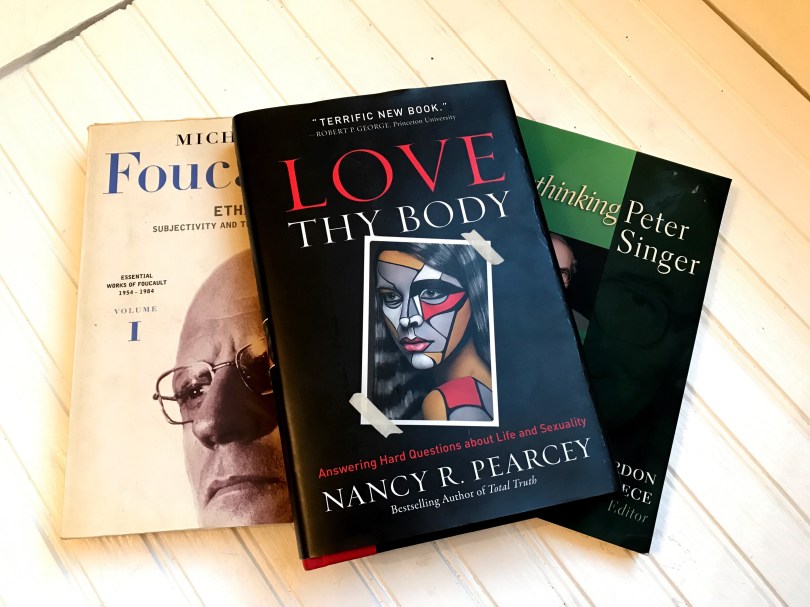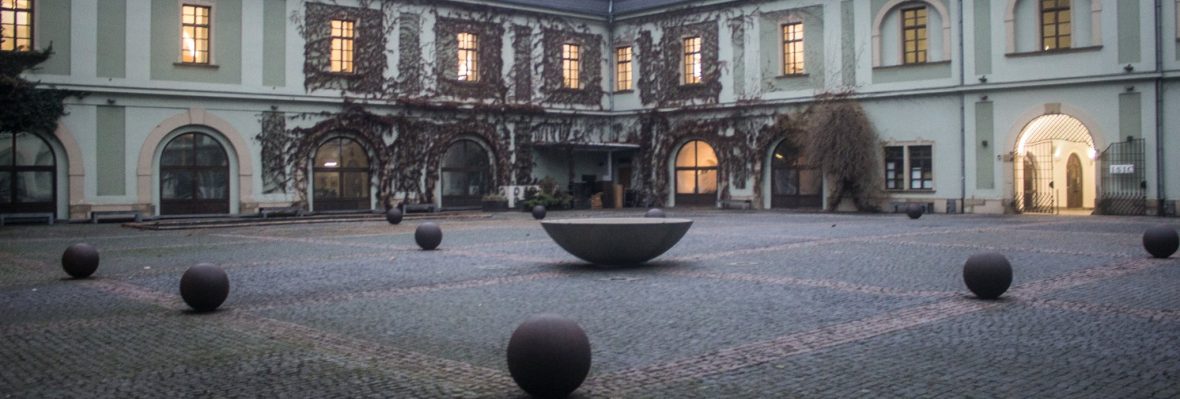
Nancy Pearcey starts off the second chapter of her new book, Love Thy Body, with the stark words of pro-choice journalist Antonia Senior referencing a feminist’s burden, “You must be prepared to kill” (pg. 47). In fairness, Senior’s full comment in the June 30, 2010 edition of the Times [London] was, “If you are willing to die for a cause, you must be prepared to kill for it, too.” Nonetheless, we know what Senior is implying. Pearcey spends the chapter effectively critiquing the personhood theory used by so many communities in our world to dispose of the young and old with a seeming mechanical efficiency. Reading through the chapter, I was again struck with the irony that according to modern personhood theory a baby is not a person, but a sexual predator who gains prominence and power sucking the life out of those around him is a person? Some of those deemed exceptional persons look more like monsters. Is that what makes a person…the ability to become a monster? It’s even stranger when you consider our use of the word ‘inhumane,’ or that famous expression used by Herbert Morrison as he watched the Hindenburg, “Oh, the humanity!” Are these statements not tributes of personhood?! We are not consistent with our blessings and curses. We lend deep meaning to those we deem worthy of it, or who prove useful to us in the moment. More times than not we ascribe personhood to those that we believe our personhood depends upon. One needs only look at propaganda between political parties, and slurs between ethnicities, to see this bend in our lens. However, the truth is that personhood always encompasses our awareness and lack of awareness, our strengths and weaknesses, and all our immature and mature minds and bodies, well-formed or ill-formed.
In reality, none of us is independently a person, but rather we are all dependent upon those before us, around us, and after us for our personhood. We deny the personhood of those humans that we find inconvenient, and yet we have all been inconvenient. Those who live longer bear more weight in wrestling with their personhood and thus are in danger of looking less like one than the baby in the womb or the quadriplegic who finds it hard to violate his neighbor any longer. Though our personhood is always with us, incubating or fully expressed with mature embodied efficiency, we must prove it to our parents, our neighbors, and our children. It might be the hardest to prove it to ourselves, and yet our God speaks it to us, even within us, before we can even hear his voice. The problem is that we desperately want to be the author of our own origin, or at least prove that we have the same capacity as that ‘distant’ Creator who has become our competitor. We want to eclipse him as creators, and yell back at him with that clever phrase from Good Will Hunting, “How do you like me now?!” Unfortunately, most of us, like Cain, find it easier to give evidence of our power, and our rights, through destructive actions. We abort, lynch, rape, and slander our neighbor, and find it much easier to do when we define them as less-than-a-person.
Pearcey ends the chapter with a cautionary challenge: “In the ancient world, Christians were distinctive for their humanitarian efforts—taking care of babies and slaves, of widows and orphans, of the sick and elderly, of the unwanted and abandoned. Today, as the West sinks back into pre-Christian practices, we must once again be ready to stand with courage and conviction. We need to confront the underlying worldview of personhood theory, with its dehumanizing impact, and then find practical ways to express the Bible’s high view of human life” (pg. 81). Let it not be said of us, as it was said of the people of Israel in the days of Ezekiel, “The people of the land have practiced oppression and committed robbery, and they have wronged the poor and needy and have oppressed the sojourner without justice. I searched for a man among them who would build up the wall and stand in the gap before Me for the land, so that I would not destroy it; but I found no one” (Ezekiel 22:29-30, NASB).
“The road is long
With many a winding turn
That leads us to who knows where
Who knows where
But I’m strong
Strong enough to carry him
He ain’t heavy, he’s my brother
So on we go
His welfare is of my concern
No burden is he to bear
We’ll get there
For I know
He would not encumber me
He ain’t heavy, he’s my brother”
(Bobby Scott & Bob Russell, 1969)
(Special thanks to Nancy Pearcey and Baker Books for the advanced copy of Love Thy Body: Answering Hard Questions about Life and Sexuality)

